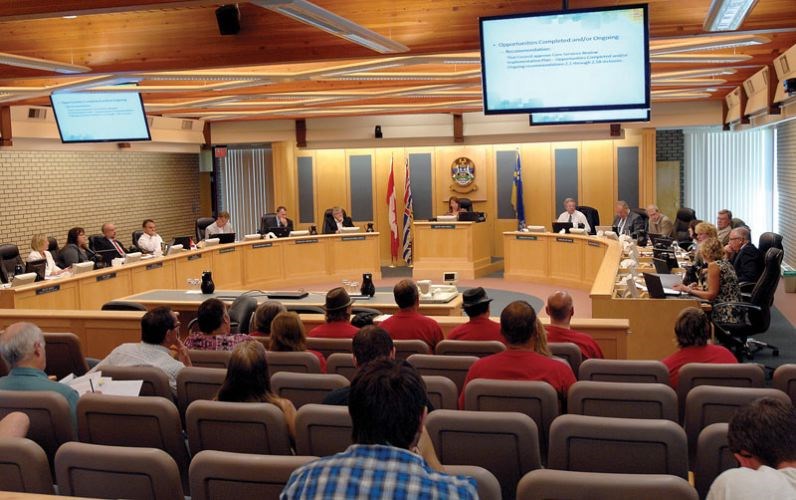The campaign signs have to be down today but there are still two weeks until the new term of council begins.
Those elected to city council on Nov. 15 don't officially begin their four-year term in office until getting sworn in during the first meeting on Dec. 1.
The first order of business will be getting everyone up to speed, said mayor-elect Lyn Hall.
"The important thing for me after the swearing-in is to have council come together and have that orientation - it's really the first time other than the swearing-in everyone will be able to talk about those logistics," said Hall.
Between now and then, Hall said he is meeting with the new group - which includes three brand new councillors and five incumbents.
With no more business at hand for the 2011-2014 council, Hall will also be working on the transition with outgoing mayor Shari Green in the coming weeks.
"We'll get together and the mayor will pass on, I'm sure, things she's been working on and projects she would like to see completed," Hall said.
The Dec. 1 swearing-in date puts the new council well within the Community Charter's 45-day time period in which officials have to take the oath of office following the declaration of election results. Those who don't take the oath within that time frame are disqualified from holding office.
In addition to the oath, the new mayor and council will also be presented with the Council Code of Conduct.
The document was developed and approved last year and sets out to establish guidelines for the "ethical and interpersonal conduct" of council members.
There's no requirement for council to sign the self-enforcing document that calls for members to comply with all the relevant federal, provincial and municipal laws already in place governing local governments.
The policy also calls for member to respect the established council procedures, conduct themselves with respect during meetings, make decisions based on merit, to not disclose confidential information or details from closed meetings and to help create a positive work environment.
On the latter point, the code prohibits members of council from commenting on staff performance outside of private correspondence or conversation with the city manager and for requests for information from staff to go through the city manager or one of the senior directors.
The city will hold an administrative orientation and briefing session for the new group of politicians and there will be a more in-depth opportunity to learn the ins and outs of civic government when the Local Government Leadership Academy (LGLA) holds its session in the new year.
The LGLA, which offers professional development training for elected officials, is hosting a series of seminars in February. The group brings the event to Prince George for those who are part of the North Central Local Government Association on Feb. 4-6.
The three-day event will cover meeting procedures, the various roles and responsibilities in local government, applicable legislation, legal issues, building relationships with First Nations, financial management, community planning and media relations.
STARTING ON THE HILL
For those already on the job, like Coun. Garth Frizzell, it's business as usual.
This week, Frizzell is in Ottawa to participate in the Federation of Canadian Municipalities' annual Advocacy Days on Parliament Hill.
The Nov. 18-20 event brings together more than 100 municipal representatives and federal MPs to discuss issues that cross the local-federal divide, such as creating jobs and economic growth, fostering livable and sustainable communities, safety and making international connections.
"We have one message for our federal counterparts this week, a strong Canada starts with strong hometowns," said FCM president Brad Woodside in a press release. "Our cities and communities are the engines that drive our country forward, creating local jobs and local growth and fostering our quality of life."
Frizzell is an FCM board member and chair of the group's standing committee on municipal finance and intergovernmental relations, which identifies areas the federal government can make changes to help reduce costs, improve revenues or protect municipalities against additional financial burdens.
He was recently named the head of an FCM international project on mining.
"It means some of the fair share agreements that we've seen in the northeast, we're going to try and translate that into Peru and Colombia for Canadian mining companies," said Frizzell, noting that there's also a lot work in "our own backyard" to be completed.

.png;w=120;h=80;mode=crop)

